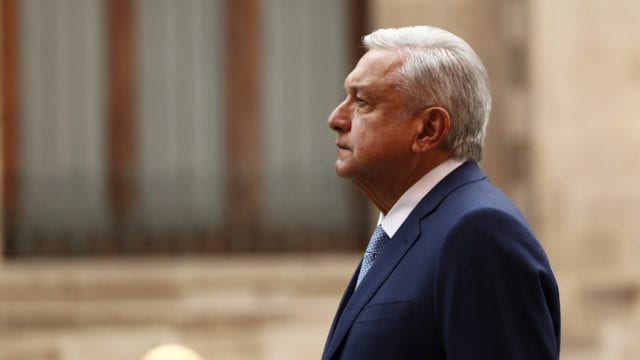Gautier Mignot, the new EU ambassador in México, said that the López Obrador reforms put the profitability of investments into question and that is why companies have expressed their concern.
México, City (April 19, 2021) (EFE).- The controversial electricity and hydrocarbon reforms of President Andrés Manuel López Obrador have left European companies in the sector “concerned”, they invested and took risks in the country, said the new ambassador of the European Union (EU) in Mexico, Gautier Mignot.
“It is true, there is concern on the part of European companies in the sector,” the French diplomat told Efe, who last Wednesday assumed his position as an ambassador of the European Union (EU) in Mexico when he handed over his credentials to the Mexican authorities.
The Electricity Industry Law, for now judicially suspended, gives priority to the state Federal Electricity Commission (CFE) over private and foreign generators.
The same is sought by the Hydrocarbons Law, designed to strengthen the state oil company Pemex and which is being debated in Congress.
Mignot explained that investors came to Mexico to “take risks in good faith and invest in that sector and participate in that energy transition,” but “today , with that reform, the rules of the game have changed .”
He said that with these decisions “the profitability of these investments is questioned and that is why the companies have expressed their concern.”
In addition, he pointed out that all countries need to make an effort to achieve the energy transition and progressively free themselves from the “global addiction to hydrocarbons and giving more space to renewable energies.”
“We do not see well how, with this reform, Mexico will be able to increase its ambition to meet its 2030 Agenda objective,” he said.
Pandemic, Critical Period
Regarding the Covid-19 pandemic, the new EU ambassador said that in Mexico it is expected that “the situation will evolve positively,” in particular, with the vaccination stage.
He recalled that in this sense that the European bloc is an essential partner for Mexico and proof of this, he said, is that 40% of the vaccines that have been used in this Latin American nation so far come from the EU.
“We are a very reliable supplier,” said Mignot, underlining that the Mexican Foreign Minister, Marcelo Ebrard, will not travel to the European Union to ensure the committed doses as he will to China, Russia, the United States and India.
“He knows that the European Union is going to get the doses since there are no restrictions or conditions for the companies that produce and send their vaccines to Mexico,” he said.
The EU “is a faithful and discreet friend of Mexico and, beyond solidarity, it tries to be consistent with what it said since the beginning of the pandemic: that the day the vaccines arrived we were going to consider them as public goods of the humanity”.
Mexico is the third country in the world in number of deaths from covid-19, after the United States and Brazil, registering more than 211,000 deaths and 2.3 million infections, while it has applied 12.9 million vaccines out of a total of 17.8 million that has received.
Relationship with México and Trade Agreement
The French diplomat stressed that the EU seeks “respectful cooperation”, sharing experiences of social economy and equity.
“We think that it can benefit Mexico a lot, that it suits it and is surely better than other models, perhaps from North America, where finally there is a greater cultural difference than with the European models,” he said.
“What we want is to cooperate more and better with the Government of Mexico,” said Mignot, whose first position abroad was as first secretary at the French Embassy in Mexico between 1998 and 2002.
Mignot recalled that there has been a trade agreement since 2000, the TLCUEM, “which is not only a free trade agreement, but also encompasses common values such as democracy and human rights.”
The new reform of the TLCUEM seeks to “improve the access of Mexican products to the European market”, such as cocoa, coffee and avocado.
“It is a very modern agreement that we are going to sign with Mexico and very important, we will take a step forward and take this relationship to a new level.”
He recalled that the EU is Mexico’s third trading partner, only behind the United States and China, and the second force in foreign direct investment.
Violence and Human Rights
Mignot’s previous stay in Mexico allowed him to learn about the problems of violence, insecurity and human rights in the country.
“They come from many decades ago, they persist and need an energetic background action, of many years to reduce them and, hopefully, one day, solve them,” he said.
He acknowledged that there are many murders of activists and journalists, as well as many disappearances, which are “a consequence of the violence unleashed by criminal groups.”
“A set of problems difficult to attack” and for this it will seek “a very close dialogue with civil society, with human rights defenders and an open and frank dialogue with the Mexican authorities,” he said.
“I am not going to make an ambassador who stays between Polanco and Santa Fe, two magnificent and pleasant neighborhoods (…) I want to leave the capital and go to the field, meet the people of Mexico in all corners of the country,” he concluded.
Source: Forbes


